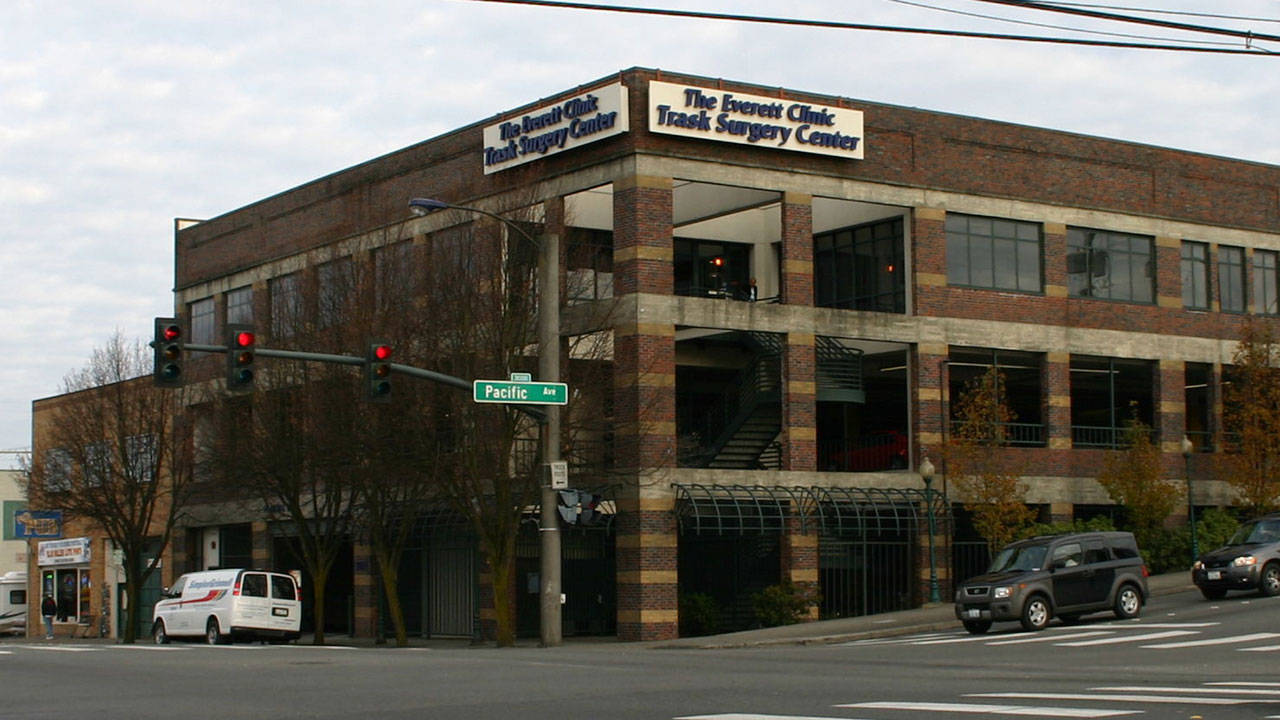By The Herald Editorial Board
There’s no question that the need exists for one or more methadone treatment centers in Everett and elsewhere in Snohomish County.
The question is where. And the Everett Planning Commission deserves credit for asking the question and trying to find a suitable location for one.
As it does, it’s time for city officials, property owners and residents to reconsider the stigma they have placed on methadone treatment centers and on methadone patients who are seeking to free themselves from opioid addiction.
Earlier this week, the planning commission heard from a representative for Therapeutic Health Services, which operates the city’s only methadone clinic at an office park building on 100th Street SW, a block off Evergreen Way. That center serves 850 people a day and is at capacity, Jon Berkedal, former deputy director for THS, told the commission at its meeting Tuesday. There are at least 100 to 200 people on a waiting list, he said, as The Herald’s Chris Winters reported Thursday.
THS has hired Berkedal on contract to find a location for a new clinic, but even limited options evaporate when potential landlords learn of the clinic’s nature and the clients it would serve.
Locating a new clinic in Everett would require a change to city code to allow more than one methadone treatment center in the city, and could also require convincing city officials to allow one within the city’s downtown zone.
The planning commission is considering a change to code that would allow a new clinic along the Evergreen Way corridor, south of Highway 526; along Broadway, north of 24th Street; or within an existing medical facility.
The state is unlikely to license a clinic so close to THS’s existing center, eliminating an Evergreen Way site as an option. And when THS inquired about state-owned property near Everett Community College, the state balked when it learned the purpose.
But there is one location that members of the planning commission want the city to consider, the now vacant Trask Surgery Center at the northeast corner of Rucker and Pacific avenues.
That site’s advantages include its location on major bus routes, ample parking and 31,000 square feet of space that because of its prior use is easily modified — and with a medical atmosphere better suited than a strip mall storefront — for the clinic’s needs.
But it sits within the city’s downtown zone, which some city officials might rather reserve for retail and other business development. And, yes — before someone hyperventilates about it — it’s a short walk from the Imagine Children’s Museum and the Everett Public Library’s downtown branch.
But it is because Everett’s downtown is, like other areas of the city, already dealing with the effects of drug addiction and homelessness, that a methadone clinic makes sense and could improve the situation by increasing the number of people who receive treatment.
First, however, we need a cure for the stigma that surrounds the clinics that administer methadone and the related drug buprenoprine and the patients who use maintenance medications.
Both drugs are very effective in treating opioid addiction because they cut the craving, obsession, intoxication and harmful consequences of opioids. And it’s not replacing one addiction with a new addiction, writes Maia Szalavitz, in a 2016 commentary for The Washington Post published last year in The Herald.
Szalavitz, a journalist and author of “Unbroken Brain: A Revolutionary Way of Understanding Addictions,” writes that steady and supervised dosing of the maintenance drugs “mean that patients are not impaired and can drive, care for families and work.”
While the medications replace the opioid addiction with a physical dependence, it’s little different than the reliance that many have for physician-approved use of antidepressants and other drugs. With opioids’ craving and obsession under better control, patients are less likely to relapse and return to the illegal and devastating drugs.
Because of that, methadone and buprenoprine are known to reduce the death rate for those with opioid addictions by 50 percent to 70 percent, Szalavitz writes. As well their use reduces crime and the incidence of infectious diseases, including hepatitis C from shared needle use.
Likewise, it’s time to correct attitudes about crime and methadone clinics.
At least two studies have shown that methadone clinics are not responsible for an increase in crime.
The University of Maryland School of Medicine in 2011 reviewed FBI Uniform Crime Statistics of crime near 13 methadone clinics in Baltimore in 1999 to 2000, comparing them to similar areas in the city without clinics. That study found that crime had not increased near the clinics.
A similar study in 2015 by Johns Hopkins University’s Bloomberg School of Public Health returned to Baltimore, this time examining statistics near 53 drug treatment centers, compared to areas near 53 convenience and liquor stores. Crime was 25 percent more likely around the liquor stores and corner stores than around the clinics, the study found.
Everett has taken bold steps to address addiction, including its lawsuit against Purdue Pharma, the maker of OxyContin, for its negligence in how it marketed the opioid and for failing to adequately notify law enforcement of potential pill mills that were supplying a drug pipeline to this city.
Finding a suitable location for a second clinic — increasing patient access to a successful addiction treatment — would continue that history of action.
Talk to us
> Give us your news tips.
> Send us a letter to the editor.
> More Herald contact information.

























